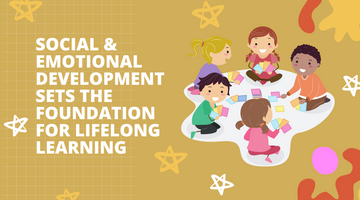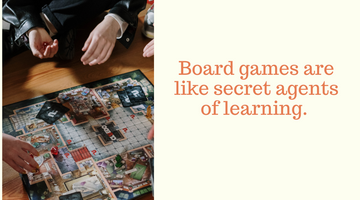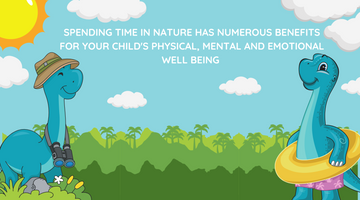Social and emotional development refers to the process by which children learn to understand and manage their own emotions and relationships with others. This development starts from birth and continues through adolescence and into adulthood. Social and emotional development involves a range of skills, including:
- Self-awareness: This involves understanding one's own emotions, strengths, and weaknesses. Children learn to recognize and label their emotions, such as happy, sad, angry, and scared.
- Self-regulation: This refers to the ability to manage one's own emotions and behaviours in response to different situations. Children learn to regulate their emotions, such as calming down when angry or excited.
- Empathy: This is the ability to understand and feel compassion for the emotions and experiences of others. Children learn to recognize and respond to the emotions of others, such as comforting a friend who is sad.
- Social skills: This involves the ability to communicate and interact with others effectively. Children learn to communicate their needs and feelings, share, take turns, and work collaboratively.
- Moral development: This involves developing a sense of right and wrong and a moral compass. Children learn to follow rules and understand the consequences of their actions.
Social and emotional development is essential for children's overall well-being and success in life. Children who have strong social and emotional skills are better able to form positive relationships with others, manage stress and challenges, and make responsible decisions. They are also more likely to have better mental health and academic outcomes.
Parents and caregivers can support children's social and emotional development by providing a nurturing and supportive environment, modelling positive behaviours and emotions, and providing opportunities for children to practise their social and emotional skills through play, social interactions, and positive reinforcement. Teachers can also support social and emotional development in the classroom by creating a safe and inclusive environment, teaching social and emotional skills explicitly, and providing opportunities for students to practise these skills.
Social and emotional development is critical for young children, as it helps them to build a strong foundation for their overall development and future success. Here are some reasons why social and emotional development is important in early childhood:
- Building Relationships: Social and emotional development helps children build relationships with other people. By learning how to communicate effectively, manage their emotions, and understand others' feelings, they are better equipped to form healthy relationships with their family members, peers, and adults.
- Self-Regulation: Social and emotional development helps children learn how to regulate their emotions and behavior. This means that they can control their impulses and respond to situations in a more appropriate way. They can also cope with stress and frustration, which is an important life skill.
- Academic Success: Children who have strong social and emotional skills are more likely to succeed academically. They have better concentration, can work collaboratively, and are more motivated to learn.
- Mental Health: Social and emotional development is important for mental health. Children who have good social and emotional skills are less likely to experience anxiety, depression, and other mental health issues later in life.
- Lifelong Learning: Social and emotional development sets the foundation for lifelong learning. By developing curiosity, creativity, and a love of learning, children are better prepared to explore and discover new things throughout their lives.
Read Article: Top 10 Literacy Games for Kids to Play
Social and emotional development is crucial for children's overall development and success in life. It has a significant impact on children in early childhood, including improved communication skills, better self-regulation, improved academic performance, better mental health, and positive future outcomes. Children who have strong social and emotional skills are better equipped to build positive relationships, manage their emotions, and succeed academically. They are also less likely to experience mental health issues later in life and more likely to have successful careers and relationships. Therefore, it is essential to promote social and emotional development in early childhood to give children the best possible foundation for their future success and well-being.






